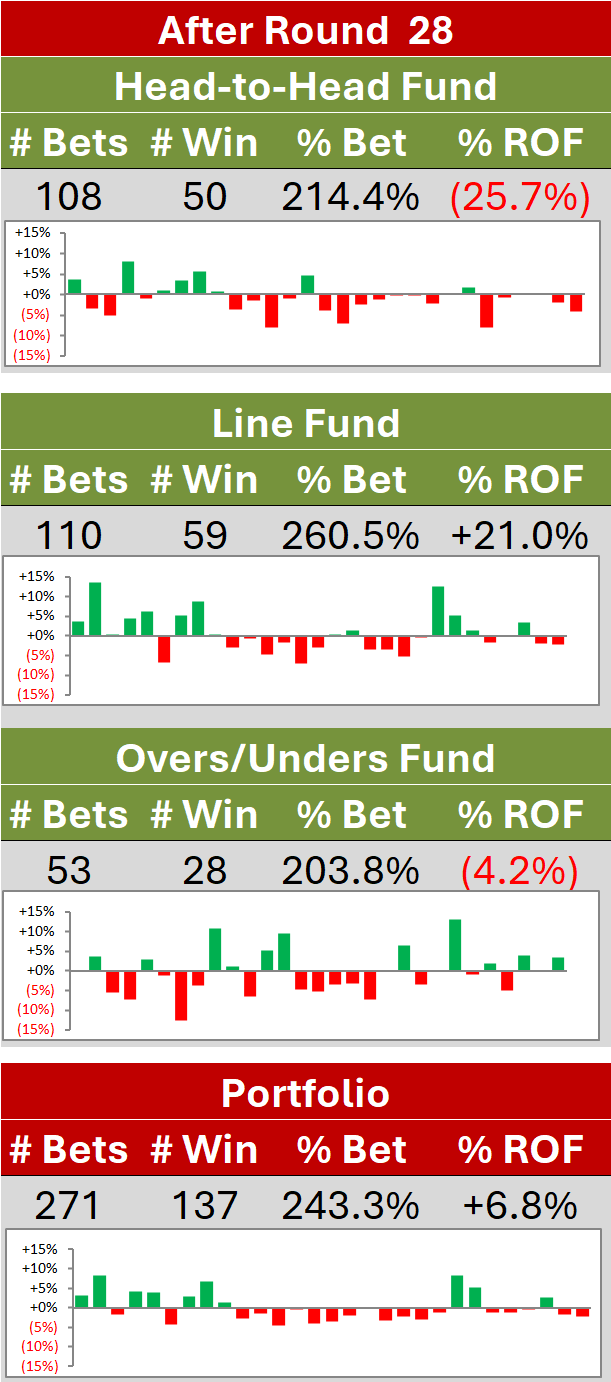Unexpectedly Large Victories in NRL: Parallels With AFL
/In the previous post we saw that large or what might be called "blowout" victories in AFL games occurred at a rate much higher than the rate at which bookmakers assigned equally large handicaps to those same games, and we saw why this might be the case from a theoretical perspective on the assumption that AFL game margins were Normally distributed.
Read More
